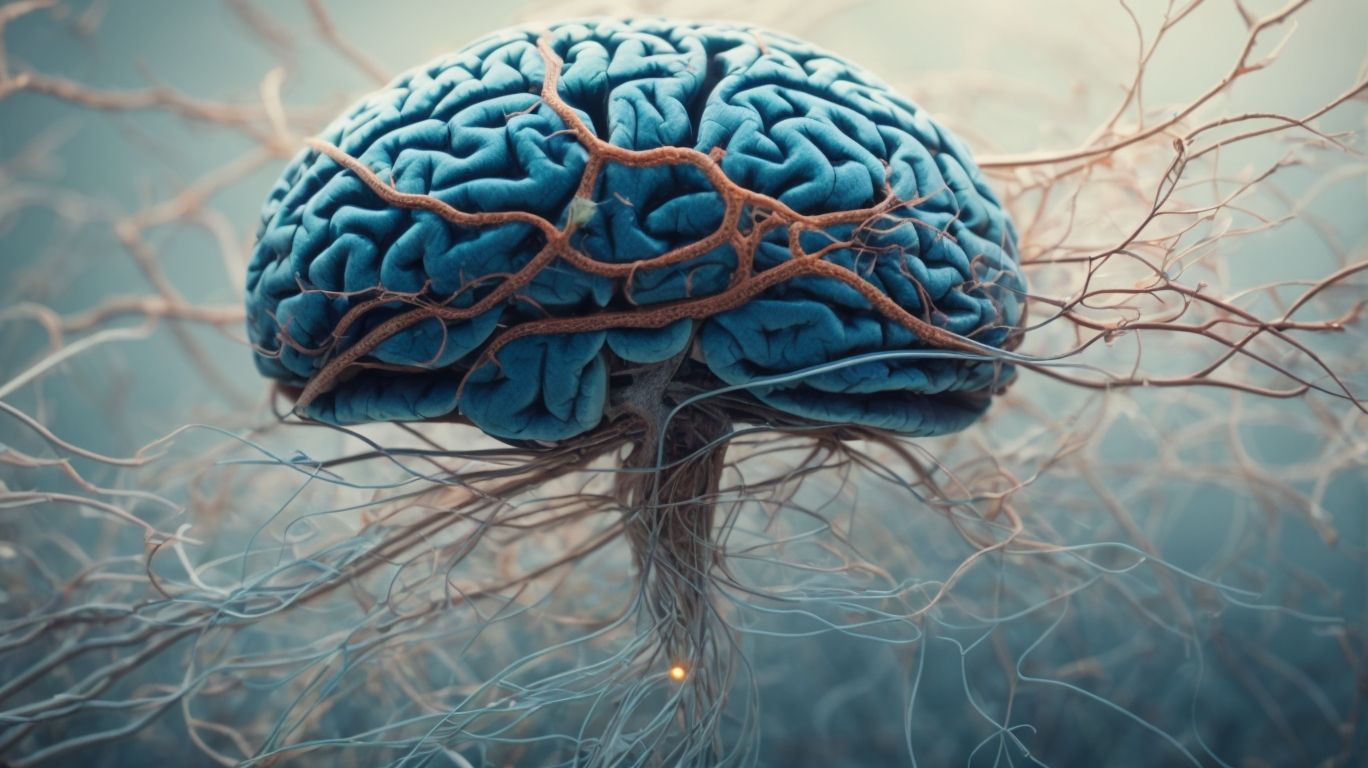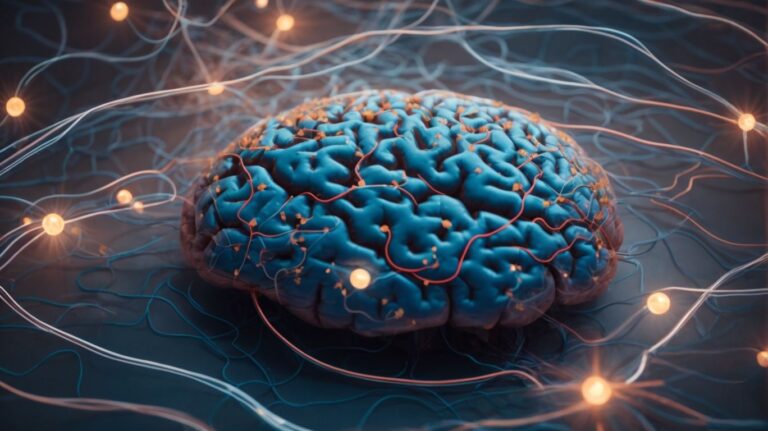The modern biological perspective in psychology offers a unique lens through which to understand human behavior and mental processes.
This article explores the key concepts of this perspective, including genetics, neurotransmitters, hormones, and evolution, and how they shape our understanding of human behavior.
We will delve into how the modern biological perspective explains personality, mental illness, and learning, as well as its applications in research methods and treatment.
We will discuss criticisms and ethical concerns associated with this perspective.
Join us as we unravel the fascinating world of the modern biological perspective in psychology.
Contents
- 1 Key Takeaways:
- 2 What Is the Modern Biological Perspective in Psychology?
- 3 What Are the Key Concepts of the Modern Biological Perspective?
- 4 How Does the Modern Biological Perspective Explain Human Behavior?
- 5 What Are the Applications of the Modern Biological Perspective?
- 6 What Criticisms Exist for the Modern Biological Perspective?
- 7 Frequently Asked Questions
- 7.1 What is the modern biological perspective in psychology?
- 7.2 How does the modern biological perspective differ from other perspectives in psychology?
- 7.3 What are some key concepts of the modern biological perspective in psychology?
- 7.4 How does the modern biological perspective explain mental illness?
- 7.5 What are some current research topics within the modern biological perspective in psychology?
- 7.6 How does the modern biological perspective impact treatment approaches in psychology?
Key Takeaways:
- The modern biological perspective in psychology focuses on understanding human behavior through genetics, brain chemistry, hormones, and evolution.
- This perspective explains personality, mental illness, and learning through biological factors.
- It has practical applications in research methods, treatments, and integration with other perspectives, but also faces criticisms of reductionism, neglect of environmental factors, and ethical concerns.
What Is the Modern Biological Perspective in Psychology?
The modern biological perspective in psychology examines how biological factors influence behavior and mental processes through scientific research and studies.
This perspective has emerged as a result of advancements in neuroscience, genetics, and psychopharmacology, allowing researchers to delve deeper into the intricate connections between brain function, genetics, and behavior.
Key proponents of this perspective, such as David M. Buss and Steven Pinker, have contributed significantly to our understanding of how biological components shape human behavior.
Understanding the biological basis of behavior has also enabled psychologists to gain insights into mental health disorders, addiction, and neurological conditions, thus facilitating the development of targeted treatments and interventions.
The integration of biological perspectives with other psychological theories has enriched the field, offering a holistic approach to understanding human behavior and cognition.
What Are the Key Concepts of the Modern Biological Perspective?
The key concepts of the modern biological perspective in psychology encompass the intricate interplay between genetics, brain function, neurotransmitters, and their impact on behavior and mental processes.
Genetics and Heredity
Genetics and heredity play a pivotal role in the modern biological perspective, influencing behavior and psychological traits through inherited genetic variations and traits.
The study of genetics has brought forth a profound understanding of how inherited traits and genetic predispositions shape an individual’s physical and psychological characteristics.
In the field of psychology, researchers are increasingly exploring the role of genetic predispositions in influencing behaviors, cognitive processes, and mental health conditions. This elucidates the complex interplay between genetic makeup and environmental factors in shaping an individual’s mental and emotional attributes.
Neurotransmitters and Brain Chemistry
The interplay of neurotransmitters and brain chemistry is a cornerstone of the modern biological perspective, shaping behavior and cognitive functions through complex neurochemical processes.
This intricate web of signaling molecules, including dopamine, serotonin, and acetylcholine, orchestrates a delicate balance within the brain, influencing mood, motivation, and learning.
The reuptake and breakdown of neurotransmitters play crucial roles in regulating their levels, affecting the overall neural signaling.
Imbalances in these neurochemical processes have been linked to various mental health disorders, such as depression, anxiety, and schizophrenia, highlighting the significance of neurotransmitters in emotional regulation and psychological well-being.
Hormones and Endocrine System
The interaction of hormones and the endocrine system is a vital aspect of the modern biological perspective, exerting profound effects on behavior and psychological processes through hormonal regulation.
As the body’s chemical messengers, hormones play a crucial role in coordinating various physiological activities, including metabolism, growth, and development. The endocrine system, comprised of glands such as the pituitary, thyroid, and adrenal glands, secretes these hormones to regulate bodily functions.
The influence of hormones extends to the behavioral domain, impacting mood, stress response, and reproductive behaviors. For instance, the release of cortisol in response to stress triggers adaptive reactions while hormonal fluctuations during the menstrual cycle can affect emotional states.
This intricate interplay between hormones and psychological processes has significant implications for understanding mental health, cognitive functioning, and emotional regulation within the broader spectrum of human behavior.
Evolution and Adaptation
The concept of evolution and adaptation is foundational to the modern biological perspective, elucidating the impact of environmental factors on behavioral and cognitive adaptations through scientific research and studies.
Delving into the intricate dynamics of this phenomenon harbors the essence of understanding the perpetual struggle for survival and optimization within diverse ecosystems.
The marvel of natural selection, exemplified by genetic variations and mutations, plays a pivotal role in the continual refinement of species. The interplay between the environmental milieu and biological traits is a testament to the dynamic nature of life, elucidating the complex interrelationship of organisms with their surroundings.
How Does the Modern Biological Perspective Explain Human Behavior?
The modern biological perspective offers insights into the complexities of human behavior, examining the interaction between biological factors, environmental influences, and the interplay of nature versus nurture in shaping consciousness and behavior.
The study of human behavior through the modern biological perspective delves into the intricate mechanisms orchestrated by genes, neurotransmitters, and the nervous system. This elucidates how these physiological elements influence human actions and decisions.
It also sheds light on the nature versus nurture debate, highlighting the intrinsic genetic predispositions and the impactful role of environmental stimuli in molding human traits and behaviors.
By integrating findings from neuroscience, genetics, and evolutionary biology, this perspective fosters a comprehensive understanding of consciousness. It also illuminates evolutionary adaptations, genetic predispositions, and neurobiological processes that modulate behavioral patterns.
Biological Basis of Personality
The biological basis of personality is a key focus within the modern biological perspective, diving into the genetic underpinnings, neurochemical influences, and their impact on individual behavioral traits and consciousness.
Genetic influences play a pivotal role in shaping an individual’s predisposition towards certain personality traits. Studies have identified various genetic markers associated with traits such as extraversion, neuroticism, and conscientiousness.
Moreover, neurochemical correlates involving neurotransmitters like dopamine, serotonin, and norepinephrine regulate mood, impulse control, and social behavior, contributing to the formation of distinct personalities.
The intricate interplay between genetics and neurochemical processes underscores the multifaceted nature of individual behaviors and consciousness. Genetic predispositions coupled with the interplay of specific neurotransmitters lay the foundation for the diverse spectrum of personalities observed in human populations.
Biological Factors in Mental Illness
The modern biological perspective sheds light on the biological factors underpinning mental illness, exploring the interplay of genetic, neurochemical, and neurological influences on maladaptive behavioral patterns and cognitive dysfunction.
Genetic predispositions, a key focus of the modern biological perspective, are elucidating how certain hereditary traits can heighten susceptibility to specific mental health disorders.
These predispositions, grounded in the individual’s genetic makeup, form the basis for understanding the heritability of mental illnesses such as depression, schizophrenia, and anxiety disorders.
Neurochemical imbalances, another crucial aspect, highlight the dysregulation of neurotransmitters and their influence on mood, cognition, and behavior.
These imbalances contribute to the development and manifestation of mental illnesses, shaping the symptoms and their severity.
Understanding the intricate web of genetic, neurochemical, and neurological factors provides profound insights into the complexities of mental illness, paving the way for targeted interventions and personalized treatments that address the underlying biological mechanisms.
Biological Influences on Learning and Memory
Biological influences play a crucial role in learning and memory processes, encompassing the interplay of brain structures, neurochemical signaling, and their impact on behavioral and cognitive adaptations.
At the core of these influences, the intricate network of neurons and synapses within the brain governs the encoding, storage, and retrieval of information. Neurotransmitters such as dopamine and serotonin orchestrate the modulation of synaptic strength, thereby shaping the formation of memories.
The hippocampus and amygdala, among other brain regions, are integral to learning and memory consolidation, distinguishing between declarative and procedural memory processes.
This integration of biological mechanisms not only fosters our understanding of adaptive behaviors, but also forms the basis for leveraging neuroscientific insights to optimize educational and cognitive interventions.
What Are the Applications of the Modern Biological Perspective?
The modern biological perspective finds diverse applications in biopsychology research methods, the utilization of biological treatments in psychology, and its integration with other psychological perspectives, fostering a comprehensive approach to understanding human behavior.
In the realm of biopsychology research methods, the biological perspective enables the exploration of the intricate interplay between the brain, behavior, and mental processes, offering valuable insights into the neurobiological foundations of psychological phenomena.
It involves the use of advanced neuroimaging techniques, such as fMRI and PET scans, to unravel the neural correlates of various mental processes and disorders, thus contributing to a deeper understanding of cognition, emotion, and behavior.
Regarding the utilization of biological treatments in psychology, the biological perspective advocates for interventions that target the underlying physiological mechanisms of psychological disorders.
This includes the use of psychopharmacological agents, such as antidepressants and antipsychotics, which exert their therapeutic effects by modulating neurotransmitter activity in the brain, thereby alleviating symptoms and enhancing overall psychological well-being.
The integration of the biological perspective with other psychological perspectives fosters a synergistic approach to understanding human behavior.
It acknowledges the interdependence of biological, psychological, and social factors in shaping an individual’s experiences and behaviors, paving the way for a more holistic and inclusive framework for psychological inquiry and intervention.
By integrating with cognitive, behavioral, and sociocultural perspectives, the biological standpoint contributes to a more comprehensive understanding of human behavior, offering a nuanced perspective on the intricate interplay between nature and nurture in psychological processes.
Biopsychology Research Methods
Biopsychology research methods encompass a range of scientific approaches that probe the biological underpinnings of behavior, integrating environmental perspectives and empirical studies to elucidate the complex interplay of biological and environmental factors.
These methods include neuroimaging techniques such as fMRI and PET scans, which allow researchers to observe brain activity in response to various stimuli or tasks, providing valuable insights into the neural correlates of behavior.
Genetic studies play a crucial role, employing advanced sequencing technologies to identify genetic markers associated with specific behaviors, shedding light on the heritability and biological basis of certain traits.
Experimental designs, including animal models and controlled laboratory studies, enable researchers to manipulate variables and assess causal relationships, expanding our understanding of the biological mechanisms underlying behavior.
Use of Biological Treatments in Psychology
The utilization of biological treatments in psychology encompasses a spectrum of therapeutic interventions targeting mental disorders, informed by scientific research and clinical approaches that integrate biological perspectives into treatment modalities.
These treatments often involve pharmacotherapy, which utilizes medications to address chemical imbalances in the brain and alleviate symptoms of mental illnesses.
Biological treatments may encompass neurostimulation techniques such as transcranial magnetic stimulation (TMS) or electroconvulsive therapy (ECT) to modulate neural activity and improve mood regulation.
The integration of biological perspectives into clinical treatments for mental disorders involves understanding the role of genetics, neurobiology, and neurochemistry in the etiology and maintenance of psychological conditions.
Research-informed approaches strive to enhance the effectiveness of interventions by targeting specific biological mechanisms implicated in mental health conditions.
Integration with Other Perspectives
The modern biological perspective integrates with other psychological perspectives, fostering a comprehensive understanding of human behavior through the synthesis of diverse research methodologies, environmental considerations, and scientific explorations.
By leveraging neuroscientific advancements, genetics, and physiology, the biological perspective offers valuable insights into the intricate workings of the human mind and behavior.
This approach complements cognitive, behavioral, and sociocultural viewpoints, acknowledging the interconnectedness of biological factors with social, environmental, and cultural influences.
It sheds light on the complex dynamics shaping human experiences, integrating findings from brain imaging studies, genetic research, and psychophysiological investigations to unravel the intricate relationship between biological mechanisms and psychological processes.
What Criticisms Exist for the Modern Biological Perspective?
The modern biological perspective faces criticisms related to reductionism, a lack of emphasis on environmental factors, and ethical concerns, challenging its comprehensive approach to understanding human behavior.
Reductionism, criticized for oversimplifying human behavior into strictly biological terms, often overlooks the intricate interplay of social, cultural, and psychological factors in shaping individuals’ actions and choices.
Critics argue that this narrow focus diminishes the richness and complexity of human experiences, limiting the scope of understanding.
The modern biological perspective’s limited attention to environmental influences, such as upbringing, socioeconomic conditions, and societal pressures, has been questioned.
Concerns about ethical implications cast doubts on the ethical frameworks and potential misuse of biological data. The application of biological principles to behavior raises ethical dilemmas, including privacy violations, stigmatization, and the potential for discrimination.
These ethical considerations warrant careful reflection and ethical guidelines to guide research and applications in this field.
Reductionism
Reductionism poses a significant criticism of the modern biological perspective, as it overlooks the complexity of psychological phenomena by emphasizing biological determinism and neglecting environmental influences.
This reductionist approach tends to prioritize the biological aspects of behavior and mental processes while downplaying the impact of sociocultural and environmental factors.
It restricts a thorough understanding of psychological phenomena, failing to account for the intricate interplay between biology, environment, and behavior.
Empirical studies have demonstrated the pivotal role of environmental influences in shaping psychological experiences and development, shedding light on their substantial contribution to overall psychological functioning.
Lack of Emphasis on Environmental Factors
A lack of emphasis on environmental factors within the modern biological perspective has been criticized for undermining the nuanced influence of environmental stimuli on behavior, cognitive processes, and consciousness.
While the biological perspective has significantly contributed to our understanding of human behavior and mental processes, its narrow focus on genetic and neurological determinants has overshadowed the profound impact of the environment on these aspects.
Critics argue that downplaying the role of environmental factors neglects the complex interplay between genetics, neurobiology, and external influences, ultimately impeding a holistic comprehension of human functioning.
Research in behavioral genetics and epigenetics has underscored the dynamic interaction between genes and the environment, shaping an individual’s psychological makeup and cognitive development.
Failure to integrate these findings into the biological perspective can lead to an oversimplified portrayal of human behavior and consciousness.
Ethical Concerns
Ethical concerns surrounding the modern biological perspective pertain to the ethical implications of research methodologies, treatment modalities for mental disorders, and the ethical considerations within scientific studies and clinical applications.
This perspective acknowledges the necessity of adhering to ethical research practices, ensuring the welfare of research subjects.
It also involves the ethical considerations in the use of innovative technologies, such as genetic editing, and the responsibility to ethically apply findings to therapeutic interventions.
It encompasses the ethical implications of informed consent procedures, data privacy, and the ethical conduct of clinical trials.
Frequently Asked Questions
What is the modern biological perspective in psychology?
The modern biological perspective in psychology is a way of understanding human behavior and mental processes through the lens of biological factors, such as genetics, hormones, and brain functioning.
How does the modern biological perspective differ from other perspectives in psychology?
The modern biological perspective focuses on the physical and physiological aspects of human behavior, while other perspectives may emphasize social, cognitive, or environmental influences.
What are some key concepts of the modern biological perspective in psychology?
Some key concepts of the modern biological perspective include genetics, neurochemistry, brain structure and function, and the influence of hormones on behavior.
How does the modern biological perspective explain mental illness?
The modern biological perspective suggests that mental illnesses can be caused by biological factors, such as genetic predispositions or imbalances in brain chemistry.
What are some current research topics within the modern biological perspective in psychology?
Some current research topics within the modern biological perspective include the role of epigenetics in behavior, the influence of hormones on decision-making, and the impact of early life experiences on brain development.
How does the modern biological perspective impact treatment approaches in psychology?
The modern biological perspective has led to the development of biological interventions, such as medications and brain stimulation techniques, as well as a greater understanding of how biological factors can contribute to mental health issues.



